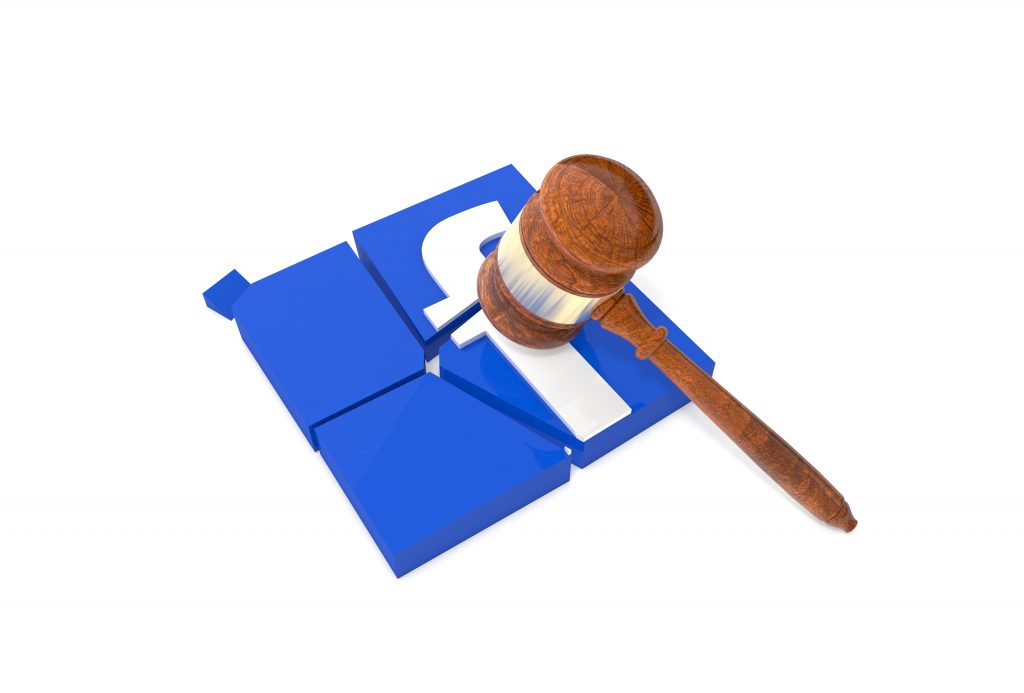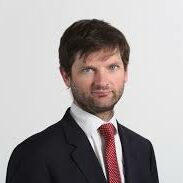“The CJEU said it is legitimate for a court to require a host provider to block or remove information that is identical to content previously declared to be illegal, irrespective of who requested the storage of that information.”
 The Court of Justice of the European Union (CJEU) has ruled that host providers, such as Facebook, can be required to take down illegal content, including identical or equivalent variations, worldwide once they are made aware of it. The Court was ruling on the interpretation of the E-Commerce Directive (Directive 2000/31/EC) in a defamation case brought by an Austrian politician. (Eva Glawischnig-Piesczek v. Facebook Ireland Limited, Case C-18/18 [ECLI:EU:C:2019:821].)
The Court of Justice of the European Union (CJEU) has ruled that host providers, such as Facebook, can be required to take down illegal content, including identical or equivalent variations, worldwide once they are made aware of it. The Court was ruling on the interpretation of the E-Commerce Directive (Directive 2000/31/EC) in a defamation case brought by an Austrian politician. (Eva Glawischnig-Piesczek v. Facebook Ireland Limited, Case C-18/18 [ECLI:EU:C:2019:821].)
The politician, Eva Glawischnig-Piesczek of the Green party, asked Facebook Ireland (which operates Facebook outside of the U.S. and Canada) to delete a news clipping and associated comment, which she claimed insulted and defamed her. Following court proceedings in Austria, Facebook Ireland disabled access in Austria to the specific content published.
However, the case raised the following questions: could Facebook Ireland additionally be ordered to remove posts with identical or equivalent content to that already found to be illegal, and should it disable access to the illegal content worldwide?
Safe Harbor
Article 15(1) of the Directive provides a safe harbor for providers, by ruling out a “general obligation to monitor” the information which they transmit or store, or to seek facts or circumstances indicating illegal activity. The Austrian Supreme Court asked the CJEU to clarify whether this provision precludes courts in EU member states from making orders regarding identical/equivalent content and extending them worldwide.
The CJEU has provided clear answers to the questions.
It said that Article 18(1) of the Directive provides that EU Member States must ensure that court actions are available to allow for the rapid adoption of measures to terminate alleged infringement and prevent further impairment of the interests involved and added: “Member States have a particularly broad discretion in relation to the actions and procedures for taking the necessary measures.”
Regarding host providers, the Court said that although there is no “general obligation” to monitor information, there is a monitoring obligation “in a specific case.” Such a case may be one where “a particular piece of information stored by the host provider concerned at the request of a certain user of its social network, the content of which was examined and assessed by a court having jurisdiction in the Member State, which, following its assessment, declared it to be illegal.”
It is therefore legitimate for a court to require a host provider to block or remove information that is identical to content previously declared to be illegal, irrespective of who requested the storage of that information. Such an injunction “cannot be regarded as imposing on the host provider an obligation to monitor generally the information which it stores, or a general obligation actively to seek facts or circumstances indicating illegal activity.”
Turning to equivalent content, the Court defined this as “information conveying a message the content of which remains essentially unchanged and therefore diverges very little from the content which gave rise to the finding of illegality.” It said that the illegality of content stems from the message conveyed by that content, rather than from the use of certain terms combined in a certain way. Therefore, to be effective, an injunction must be able to extend to information that conveys the same message despite being worded slightly differently. Otherwise, the injunction could be easily circumvented and the person concerned could have to initiate multiple proceedings.
But the Court emphasized that a court may not grant an injunction requiring general monitoring or require the host provider actively to seek facts or circumstances underlying the illegal content. The “equivalent information” must contain specific elements which are properly identified in the injunction, such as:
- the name of the person concerned by the infringement determined previously,
- the circumstances in which that infringement was determined, and
- equivalent content to that which was declared to be illegal.
The differences between the equivalent content and the original illegal content must not be such as to require the host provider to carry out an independent assessment of that content.
The Court addressed the “worldwide” question fairly briefly, saying the Directive does not provide for “any limitation, including a territorial limitation,” on the scope of measures that can be adopted, and therefore does not preclude injunctions from producing effects worldwide. It is up to Member States to ensure that measures adopted take due account of rules applicable at international level.
Impact of the Judgment
While the judgment gives the green light to courts in EU Member States to grant injunctions with worldwide effect, it remains to be seen how these will be implemented or enforced in practice—in particular, where that jurisdiction is challenged.
In a statement, Facebook Ireland said the judgment undermines the principle that one country does not have the rights to impose its laws on speech on another country. It also said it could require internet companies to monitor what is “equivalent” content: “In order to get this right national courts will have to set out very clear definitions on what ‘identical’ and ‘equivalent’ means in practice. We hope the courts take a proportionate and measured approach, to avoid having a chilling effect on freedom of expression.”
The decision has also been criticized by rights groups such as Article 19.
Although the judgment in this case mainly concerned defamation, the Directive is also relevant in cases regarding the liability of intermediaries for infringement of IP rights. For example, the Directive was discussed in the Google France case concerning keyword-based advertising and in the L’Oréal v eBay case concerning eBay’s liability for trademark-infringing goods sold via its electronic marketplace. (Joined Cases C-236/08 to C-238/08 and Case C-324/09.)
Image Source: Deposit Photos
Photography ID: 188830032
Copyright: nextnewmedia

![[IPWatchdog Logo]](https://ipwatchdog.com/wp-content/themes/IPWatchdog%20-%202023/assets/images/temp/logo-small@2x.png)

![[Advertisement]](https://ipwatchdog.com/wp-content/uploads/2024/04/Patent-Litigation-Masters-2024-sidebar-early-bird-ends-Apr-21-last-chance-700x500-1.jpg)

![[Advertisement]](https://ipwatchdog.com/wp-content/uploads/2021/12/WEBINAR-336-x-280-px.png)
![[Advertisement]](https://ipwatchdog.com/wp-content/uploads/2021/12/2021-Patent-Practice-on-Demand-recorded-Feb-2021-336-x-280.jpg)
![[Advertisement]](https://ipwatchdog.com/wp-content/uploads/2021/12/Ad-4-The-Invent-Patent-System™.png)







Join the Discussion
One comment so far.
TFCFM
October 8, 2019 09:58 amThe Court of Justice of the European Union (CJEU) has ruled that host providers, such as Facebook, can be required to take down illegal content, including identical or equivalent variations, worldwide once they are made aware of it.
I worry about what happens when you delete “CJEU” and substitute in its place “Supreme People’s Court of the PRC,” “Supreme Court of Iran,” or “Supreme Court of the Russian Federation.”